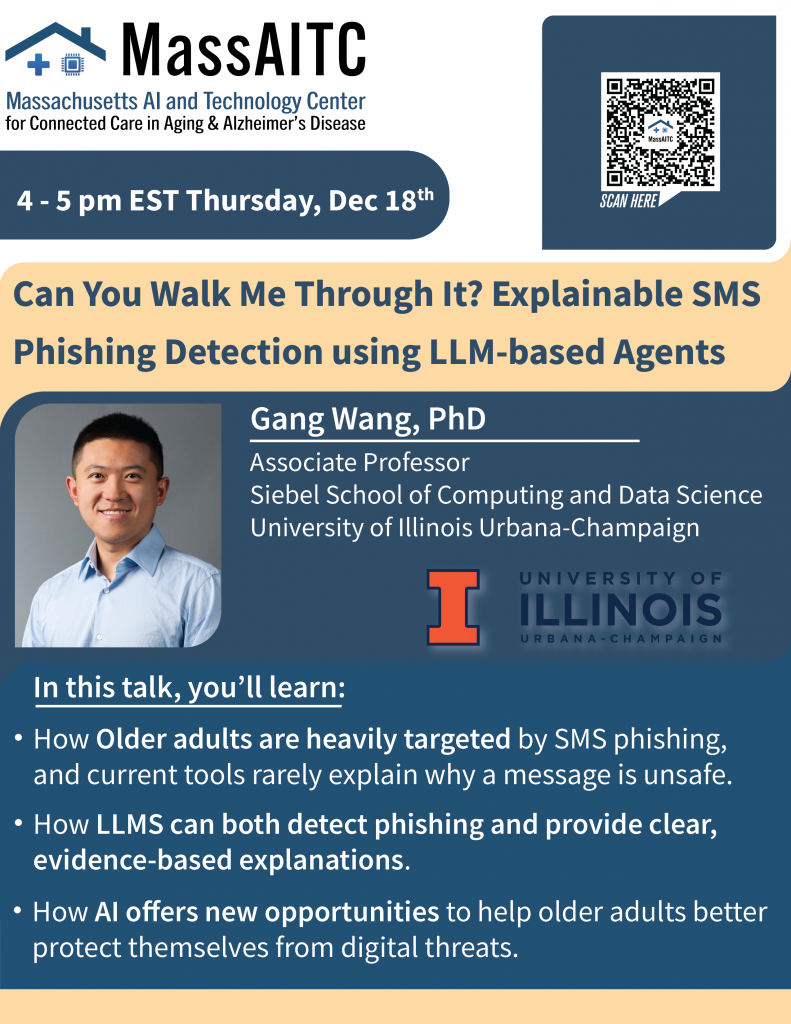
Abstract:
Phishing attacks pose a significant threat to users, especially older adults. Existing defenses mainly focus on phishing detection but often cannot explain to lay users why a message is malicious. In this talk, I will discuss how we use Large Language Models (LLMs) to detect SMS phishing while generating evidence-based explanations. The key challenge is that SMS is short, lacking the necessary context for security reasoning. We develop a prototype called SmishX that gathers external contexts to augment the chain-of-thought (CoT) reasoning of LLMs and facilitate the explanation process. I will further discuss our user studies to evaluate the effectiveness and usability of SmishX. Finally, I will discuss the open challenges and opportunities of using AI to help older adults better protect themselves from cybersecurity threats in general.
Biography:
- Gang Wang, PhD, Associate Professor, Siebel School of Computing and Data Science, University of Illinois Urbana-Champaign
- Gang Wang is an Associate Professor of Computer Science at University of Illinois Urbana-Champaign. His research interests are Security and Privacy, Machine Learning, and Human-Computer Interaction (HCI). He works to build explainable and robust data-driven solutions to protect Internet systems, uncover novel threats, and augment humans’ ability to perform security tasks. He is a recipient of the NSF CAREER Award (2018), Amazon Research Award (2021), Google Faculty Research Award (2017), and Best Paper Awards from IMWUT, ACM CCS, and SIGMETRICS. His projects have been covered by media outlets such as MIT Technology Review, The New York Times, and ACM TechNews. His team recently won the first place at the Amazon Nova AI Challenge (focusing on Code LLM safety).
